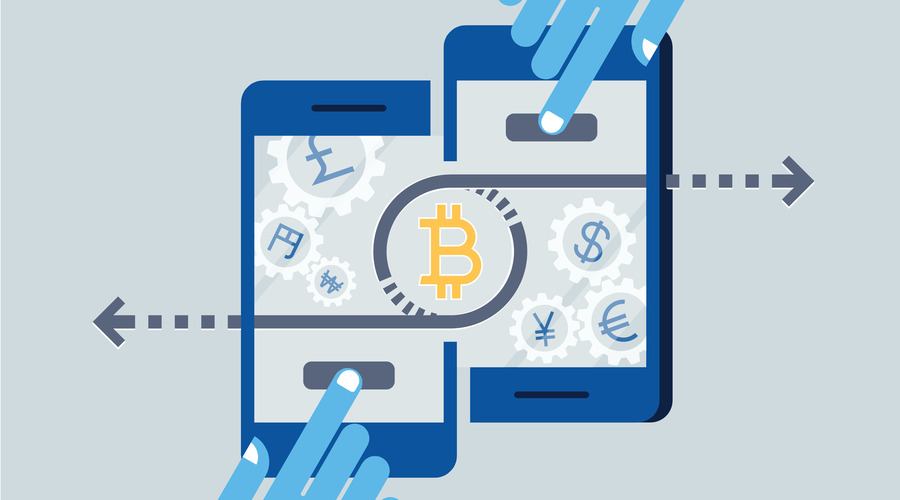The Rise of Peer-to-Peer Crypto Exchanges

The Rise of Peer-to-Peer Crypto Exchanges
The world of cryptocurrencies has been rapidly evolving since the inception of Bitcoin in 2009. Cryptocurrencies are digital or virtual currencies that use cryptography to secure and verify transactions and to control the creation of new units. The popularity of cryptocurrencies has led to the emergence of various crypto exchanges. One such type of exchange that has gained significant attention in recent years is peer-to-peer (P2P) crypto exchanges. This article will explore the rise of P2P crypto exchanges and why they are becoming increasingly popular.
What are Peer-to-Peer Crypto Exchanges?
P2P crypto exchanges are decentralized marketplaces where individuals can buy and sell cryptocurrencies without the need for intermediaries such as banks or traditional exchanges. P2P exchanges connect buyers and sellers directly, allowing them to trade cryptocurrencies using payment methods such as bank transfers, credit cards, or cash.
Advantages of Peer-to-Peer Crypto Exchanges
P2P crypto exchanges offer several advantages over traditional exchanges. These include:
Lower Fees
P2P exchanges have lower fees compared to traditional exchanges. This is because P2P exchanges do not have to maintain costly infrastructure or pay high listing fees to list tokens on their platform.
Enhanced Privacy
P2P crypto exchanges offer enhanced privacy compared to traditional exchanges. This is because users can transact directly with each other, without the need for KYC or AML procedures that are mandatory for traditional exchanges.
Increased Accessibility
P2P exchanges are accessible to anyone with an internet connection and a device that can access the internet. This makes P2P exchanges an attractive option for people living in countries where traditional banking services are not easily accessible.
Decentralized
P2P crypto exchanges are decentralized, which means any single entity does not control them. This makes them more resistant to censorship or hacking attempts.
Disadvantages of Peer-to-Peer Crypto Exchanges
While P2P crypto exchanges offer many advantages, they also come with some disadvantages. These include:
Lack of Liquidity
P2P exchanges often have lower liquidity compared to traditional exchanges. This means that there may not be enough buyers or sellers at any given time, leading to wider bid-ask spreads and longer wait times for trades to be executed.
Higher Risk
P2P exchanges carry a higher risk compared to traditional exchanges. Since P2P exchanges do not have the same level of regulatory oversight, there is a higher risk of fraud, scams, and hacks.
Limited Selection of Cryptocurrencies
P2P exchanges often have a limited selection of cryptocurrencies compared to traditional exchanges. This means that users may not be able to find the specific cryptocurrency they are looking for on a P2P exchange.
Technical Expertise Required
P2P exchanges require users to have a certain level of technical expertise. Users need to be able to navigate the platform, understand the risks involved, and be able to secure their own funds.
Rise of Peer-to-Peer Crypto Exchanges
P2P crypto exchanges have gained significant attention in recent years, with many new exchanges entering the market. This can be attributed to several factors, including:
Increased Adoption of Cryptocurrencies
The increased adoption of cryptocurrencies has led to a surge in demand for P2P exchanges. Many people are now turning to P2P exchanges to buy and sell cryptocurrencies, as they offer lower fees and enhanced privacy compared to traditional exchanges.
Regulatory Pressure on Traditional Exchanges
Regulatory pressure on traditional exchanges has also contributed to the rise of P2P cryptocurrency exchanges. Many countries have introduced regulations that make it difficult for traditional exchanges to operate. P2P exchanges, on the other hand, operate in a decentralized manner and are not subject to the same regulatory requirements as traditional exchanges.
Emergence of Decentralized Finance (DeFi)
The emergence of DeFi has also contributed to the rise of P2P cryptocurrency exchanges. DeFi is a new financial system built on top of blockchain technology that allows people to access financial services without the need for intermediaries such as banks or traditional exchanges. P2P exchanges are a crucial part of the DeFi ecosystem, allowing people to trade cryptocurrencies in a decentralized and peer-to-peer manner.
Popular Peer-to-Peer Crypto Exchanges
There are many P2P cryptocurrency exchanges available in the market, each with its own unique features and benefits. Some of the most popular P2P crypto exchanges include:
LocalBitcoins
LocalBitcoins is one of the market’s oldest and most popular P2P crypto exchanges. It allows users to buy and sell Bitcoin using a variety of payment methods, including cash.
Paxful
Paxful is a P2P crypto exchange that allows users to buy and sell Bitcoin using over 300 payment methods, including bank transfers, credit cards, and gift cards.
Bisq
Bisq is a decentralized P2P crypto exchange that allows users to trade Bitcoin and other cryptocurrencies without the need for intermediaries. It offers enhanced privacy and security features, including a decentralized arbitration system.
Hodl Hodl
Hodl Hodl is a P2P crypto exchange that allows users to buy and sell Bitcoin using a variety of payment methods, including bank transfers, credit cards, and even escrow accounts.
Future of Peer-to-Peer Crypto Exchanges
P2P crypto exchanges are poised to play an increasingly important role in the crypto industry. As the world becomes more decentralized, we can expect P2P exchanges to become even more popular, especially in countries where traditional banking services are not easily accessible. With the emergence of new technologies such as DeFi, we can expect P2P exchanges to evolve and offer even more advanced features.
Conclusion
P2P crypto exchanges offer many advantages over traditional exchanges, including lower fees, enhanced privacy, and increased accessibility. However, they also come with some disadvantages, such as a lack of liquidity and a higher risk of fraud. Popular P2P exchanges include LocalBitcoins, Paxful, Bisq, and Hodl Hodl. As the crypto industry continues to evolve, we can expect P2P exchanges to play an increasingly important role in the ecosystem.







